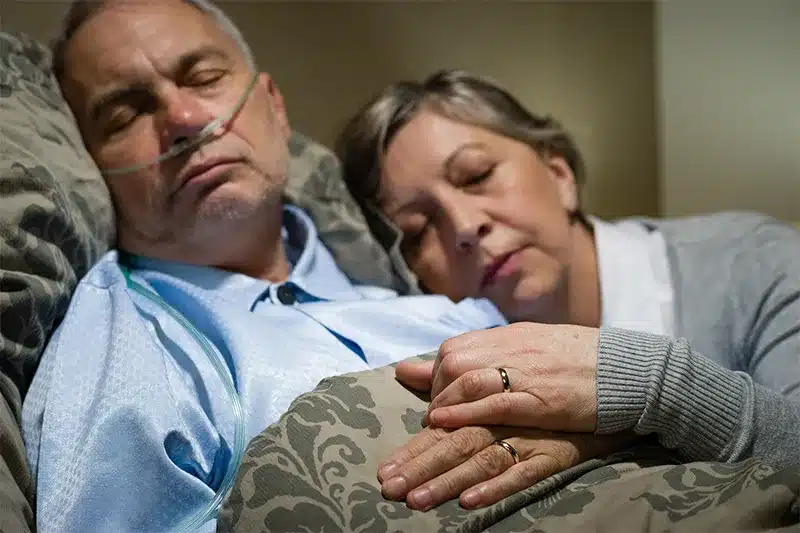Nocturnal Hypoxemia
Nocturnal Hypoxemia Specialist in Colorado
What is nocturnal hypoxemia?
Nocturnal hypoxemia can also be known as sleep related hypoxemia, sleep related oxygen desaturation, low nocturnal oxygen saturation or nocturnal oxygen desaturation. All of these names represent the same phenomenon in which a sleep study or nocturnal oximetry study shows oxygen saturation during sleep less than or equal to 88% for greater than or equal to 5 minutes. It does not need to be 5 consecutive minutes, but rather 5 minutes throughout the entire night’s sleep. One must also rule out sleep related hypoventilation (retention of carbon dioxide).
It may occur in addition to obstructive or central sleep apnea if these are not believed to be the cause of the hypoxemia.
It is typically the result of a medical or neurologic condition and patients can also exhibit daytime hypoxemia during wakefulness.
What are the symptoms of nocturnal hypoxemia?
-
Patients can be asymptomatic
-
Shortness of breath during the night
-
Impaired sleep quality
-
Chest tightness
-
Fatigue

Treatments Offered:
-
The treatment will include supplemental oxygen. It may also include the addition of CPAP or BPAP if obstructive or central sleep apnea are also noted to be present.
Frequently Asked Questions
I do not enjoy sleeping with oxygen on, what are the complications of low oxygen at night?
Hypoxemia if untreated can result in high blood pressure in the lungs (pulmonary hypertension), heart failure, irregular heart rhythms, and neuro-cognitive dysfunction. Many patients may also develop polycythemia, abnormally high red blood cells in the body which can increase your risk of blood clots, stroke or heart attack.